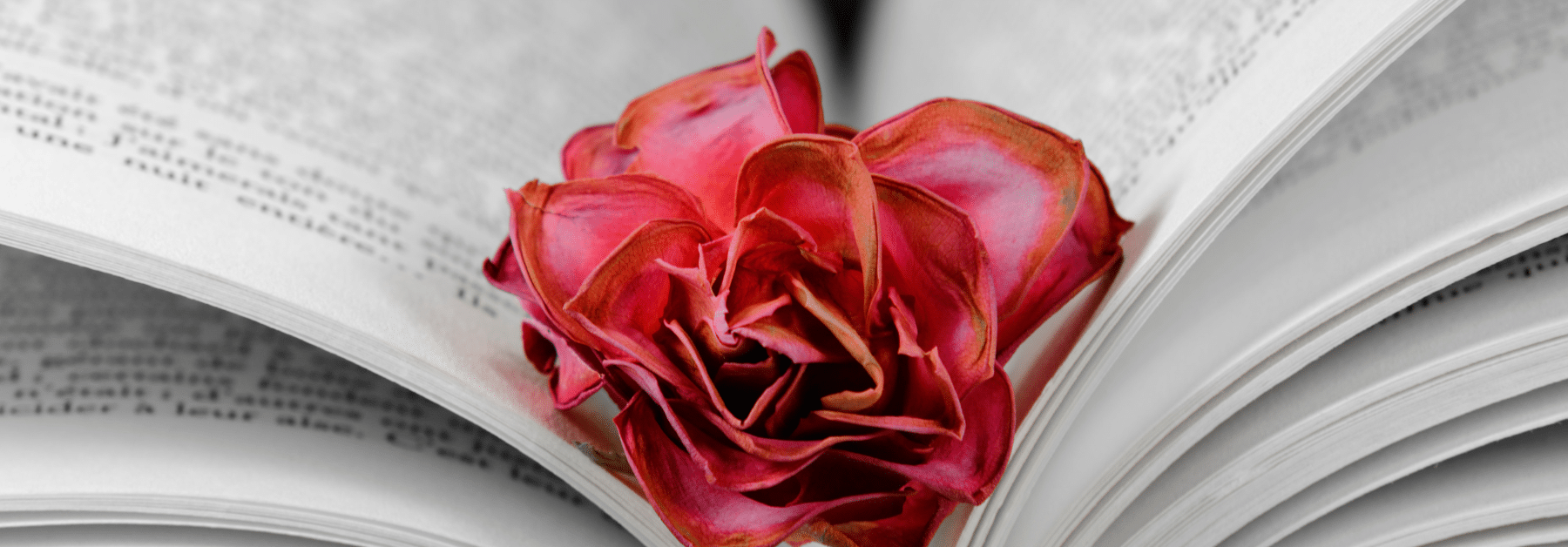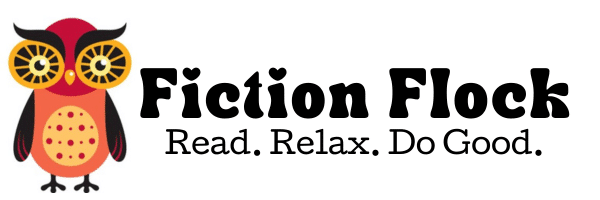My Middle-Aged Romance Conundrum

There is no denying the popularity of romance novels. They have, in fact, over the last few years, increased in popularity and near the end of 2022 had reached nearly $1.5 billion dollars in sales in just one calendar year. The primary readers of romance, of course, are women. There are lots of theories as to why this genre is growing, much of it centered around a strong millennial and Gen-Z reader population and an expanding menagerie of modern storylines that embrace female sexuality, body positivity, and a greater representation of all different kinds of women.
But as a 47-year-old Gen-Xer, I find myself struggling to find the the storylines and representation of a modern middle-aged woman that isn’t one of three things: a dissatisfied soon-to-be divorcee hoping to find love again (usually with someone from her past), an unhappy empty nester who feels invisible to her spouse and the world around her, or the sex-crazed hormone plagued cougar/MILF stereotype of a woman struggling to hold onto the last vestiges of her youth by bedding a much younger man.
This is likely the main reason the book in this month’s box, Half Way to You by Jennifer Gold, appealed to me so much. It is absolutely a romance, but not the typical HEA. The main character refuses to sacrifice the things she’s built, the things that make her happy, for a relationship. She loves him, there’s no question of that, and there’s all kinds of firework inspiring passion, but what made me care about the main character is that she loved herself more. What she wanted for herself, her own self-driven happiness mattered more.
You Must Not Be a True Fan
A true romantic would probably tell me that sounds selfish. I mean, what is love if not the willingness to sacrifice all, give all, for the one you love?
And therein lies the rub, the conundrum of romance for me. So many of the romance books I’ve read want to continue a narrative I’ve been working to release…that there is some kind of nobility and beauty in suffering and sacrificing yourself for someone else.
In the spirit of transparency, a lot of my recent reading choices, and subsequent pondering of this genre, have been inspired by one of those bumps in the road that I’ve been told is normal for a couple who has been married for as long as my husband and I have been. Top that off with the deep trauma healing work I’ve been doing, and I will be the first to admit that romance often feels like a mixed bag offering both the promise of the connection I crave but also often feeling forbidden or something I can only have if I give enough of myself that my partner deems me worthy.
On its surface, reading romance does make me feel good. I mean what’s not to enjoy with all of those fall-in-love swoon-worthy romantic gestures, passionate kisses, and experienced, roaming hands that know exactly what to do to release legions of butterflies in my stomach and send electrifying quivers of desire deep into my feminine nether regions?
But after the flush of color has faded, the recounts of perfectly timed in-tandem orgasms read, and the cover closed on the certainty of an attainable happily ever, I am left feeling more than a little unsatisfied with my real-life romantic situation. I’m no longer a twenty- or even thirty-something looking for my true love. I’m not looking for a second chance at love after a failed relationship. And while hormones are waging war between my aging ovaries and my brain, I’m certainly not doing shots at the bar and waving dollar bills at the stage while on the prowl for some tender young, ahem, meat.
Before I go on, let me just add that there is nothing wrong with these kinds of characters (or any woman who identifies or wants to identify with them).
But in the widening array of options that are continuing to drive up sales for the romance genre, where are the love stories for your average, everyday middle-aged woman who still wants the passion all the rest demand without having to be anything other than herself?
To all of my fellow gen-Xers (and anyone else for whom this resonated), I don’t know about you, but I’m starting to feel like traditional HEA romance novels are, in many ways, no different than the toxic beauty filters that are destroying our self-confidence all over social media. Or an addiction that demands that we read more and more and more because it’s what we want and need, but don’t have in our real lives. Is this a battle scar of a damaging narrative worn by our generation?
Dear god, please tell me it isn’t just me who is feeling this way.
Gen X Mixed Messaging
I’m no expert on this topic (if you are, don’t come for me, I’m just sharing my experience, okay?), but when I look back at the books and movies I watched as an impressionable teenager, it’s really no wonder that I’m struggling now and no wonder we lack a solid, positive narrative for this part of our lives. Pretty much all of the romance-leaning stories I watched and read when I was in middle school and high school told the story of a brave, courageous, heroic man who would come along and save me from the miserable and lonely life I was destined to have without him. He alone would see through my quirks and imperfections and love me so hard and so completely, that all of my problems would just melt away. He would provide a home and be okay with me taking up just enough space to feel like I was contributing so long as I didn’t detract from his accomplishments and presto, chango! Here’s your happy ending.
Oh, and by the way, they convinced us that all the good guys wanted this too. They wanted to play the hero.
At the same time, in the 80’s and 90’s it was socially acceptable (and financially necessary) for a woman to have a career, so none of this kept-woman-barefoot-in-the-kitchen for us. We ventured into corporate America in our shoulder-padded pantsuits, determined to prove we could do anything we set our minds to, but the narrative never really changed. No matter the woman or the job, the goal was always to find a man, get married, and have a family. That was the norm. That’s what was expected.
Go do all the things, you modern woman you.
Get the job.
Convince a man to marry you.
Have the babies.
Manage it all to your own detriment, don’t be too good at any of it, suffer and sacrifice beautifully, and then, dear child, then you can be happy.
I mean, seriously, think about it. There was An Officer & a Gentleman, Dirty Dancing, Flashdance, Romancing the Stone, Pretty Woman, and so many more. All with their imperfect, quirky, go-against-the-grain female protagonist (one typically outside of the social norm, aka “loose”) saved by the strong, protective male hero, who solves their problems and because he’s so benevolent, despite all the things that make her slightly tainted, still loves her.
At the same time, we had movies like Weird Science, Mannequin, Revenge of the Nerds, Zapped, and countless others, that openly and shamelessy objectified women while promoting a “boys will be boys” mentality.
We learned that we had to be pretty and quirky enough to attract a hero, needy enough to inspire his instinct to rescue us, and if by chance we were no longer virginal, we had to at least have the decency to be ashamed of ourselves because otherwise, we were nothing more than a lust magnet, deserving of any negative attention we might get because, well, just look at how we were dressed.
I grew up believing I needed to hold out for a hero and navigate that fine line of being just pretty/good/smart/sexy/interesting enough so a man would find me worthy.
And your girl did that, I guess, and now that I’ve done all the things, worked the job, married the man, raised the kids, etc, when I want to see myself represented in a romance novel, I either have to nip, tuck, and lift enough to be the Mrs. Robinson/Stacey’s mom type, don the snarky, bitter, perimenopausal-weight-gaining cloak of invisibility, or take a torch to my life and start over as the slightly embittered divorcee looking, once again, for the hero who can see past all my baggage and still manage to love me.
Where are the romance novels for gals like me? Where is the representation of middle-aged women who just get to be who we are, as we are, right now? Where are the women learning to shed that mixed messaging, embrace the body that has carried the weight of career and motherhood, and love themselves while enjoying all the unbridled passion permissible with the time and skills we now possess?
Obviously, there are still some things I need to work out, a level of acceptance and authenticity I still need to achieve when it comes to love and romance, but it sure would be nice to see this part of my life, this space between the sleep-deprived mother/career woman and senior living center resident diva represented in this genre.
Maybe there’s more of it out there? Rich caches of forty- and fifty-something protagonists out there living their best lives on the pages and between the sheets and I just haven’t found it yet?
If you’ve written a book, or read one that lives in this space, for the love of all that is good and romantic, please tell me.
For now, I think I’ll be laying off the romance for a while (no pun intended.)

This Post Has 2 Comments
I love everything about this post! I’m a 50-something Gen X-er who got burned out on romance (reading AND writing it) who ended up writing a combo chick lit/mystery with a 30-year-old protagonist. I couldn’t do plain old romance anymore! But I miss loving romance.
I think women’s fic (excuse the chick lit/women’s fic words; I know some people bristle at them, but they serve a purpose when describing categories) fulfills some of what you are craving here.
I’m going to save this post as inspiration because I’ve been thinking about writing a romance with a Gen X woman main character. I don’t see any reason it couldn’t be done. Older single who for one reason or another never tied the knot or who lost a lover for some reason. The only thing is, I’m not about to write about online dating!
I agree with everything you said. I’m a happily married 42 year old High School teacher, so romances present a problem for me.. I can’t read one without feeling like a pedophile. It’s simply disgusting to read about kids in their 20s having sex. Also, so unrealistic to read about how great the sex is. Nobody in their 20s is having sex like that..end of story. I just want to roll my eyes!!
The only romantic book I’ve ever read that comes anywhere close to what I’m looking for is Outlander. There you get good writing and a happily married couple that struggles fights and still has passion. Let’s have more of that please!!..